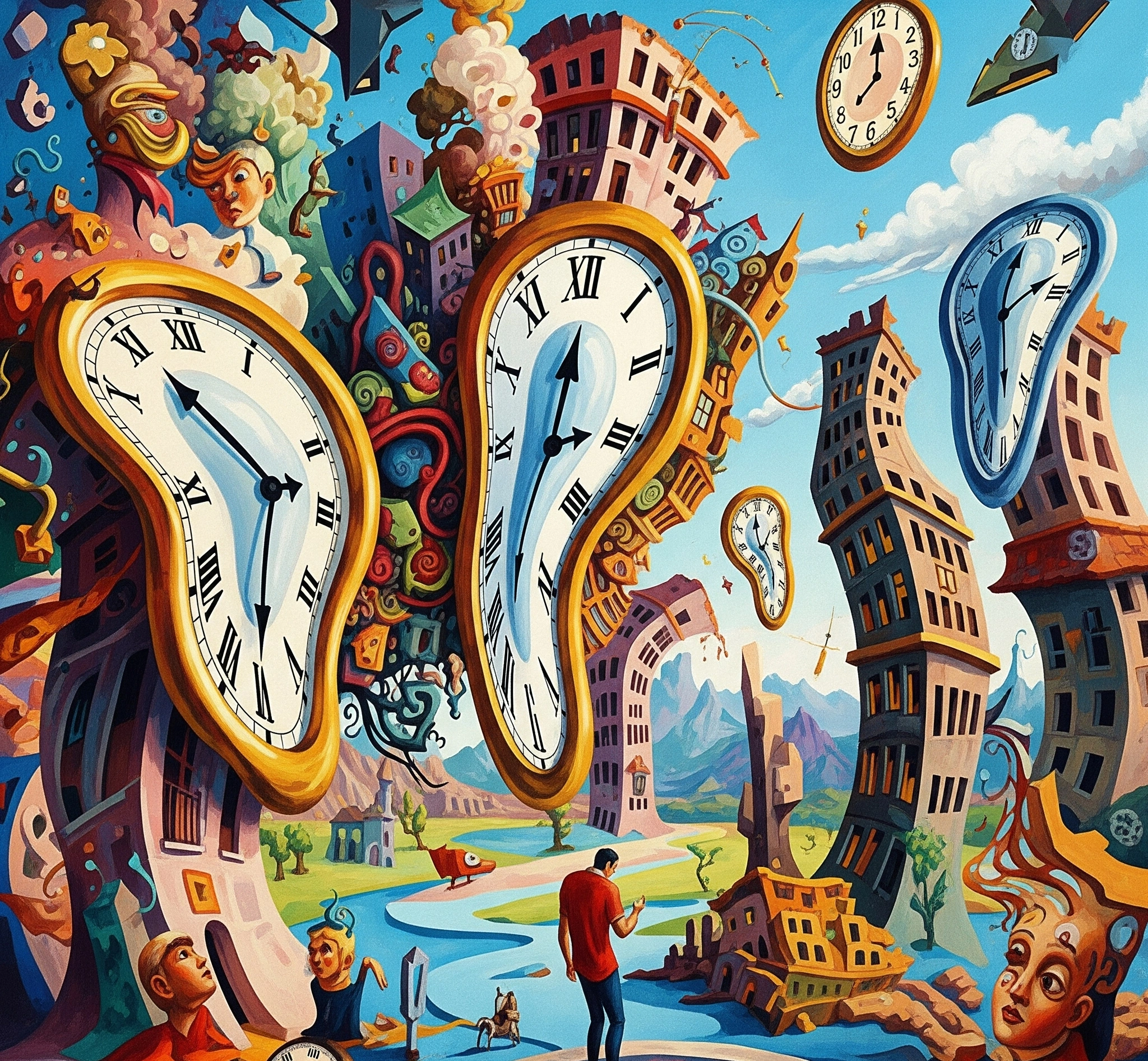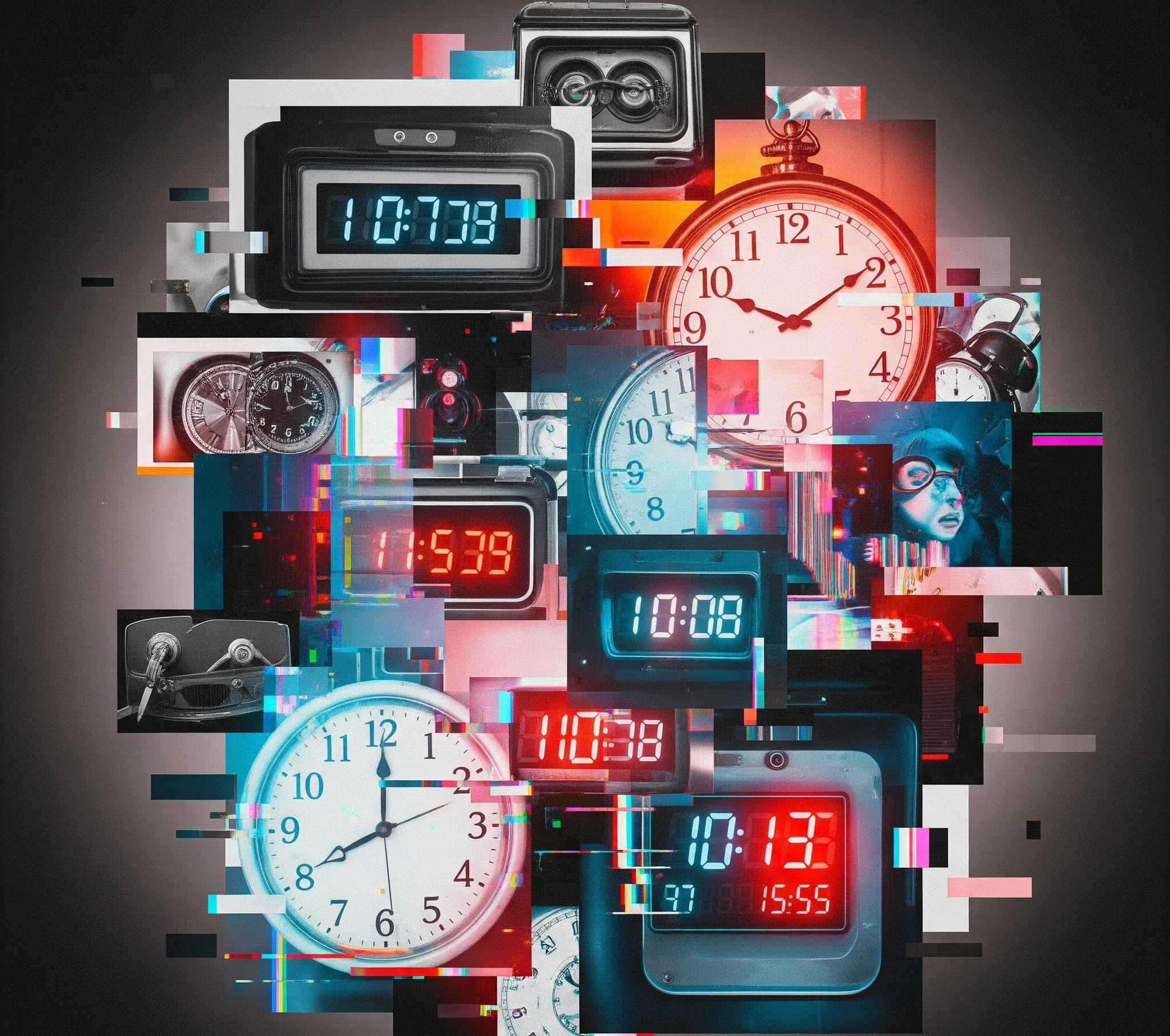Have you ever watched a film that made you question the very fabric of reality, leaving you pondering its twists long after the credits rolled? Time travel movies and psychological thrillers often achieve this, but some films go further, truly twisting your perception of chronology and causality. This can leave viewers feeling both fascinated and utterly bewildered. Indeed, it’s a common modern struggle: wanting to explore complex narratives, yet feeling overwhelmed by their intricate plots. This isn’t about deciphering quantum physics; rather, it’s a practical roadmap to help you navigate the most captivating and mind-bending cinematic experiences. Ultimately, we’ll demystify Time-Bending Films, showing you that they are not just clever puzzles; instead, they are profound psychological tools, offering practical wisdom and symbolic interpretations of human experience that can expand your understanding of narrative and reality itself.
 Table of Contents
Table of Contents
- What Defines a Time-Bending Film?
- Navigating the Labyrinth: Key Traits of Mind-Twisting Cinema
- Your Chronological Challenge: 5 Time-Bending Films
- Beyond the Paradox: Engaging with Complex Narratives
- The Echo of Time-Bending Narratives in Our Digital Age
- The Unfolding Fabric of Time
- Call to Action
- Context and References
What Defines a Time-Bending Film?
A time-bending film is a cinematic work that intentionally manipulates or distorts the conventional linear progression of time within its narrative. These movies often explore concepts such as time travel, parallel universes, time loops, or subjective perceptions of time. Unlike straightforward chronological stories, they challenge the audience’s understanding of events, causality, and character motivations. This often creates a sense of disorientation and intellectual engagement.
The origins of such narratives can be found in philosophical discussions about time and destiny. However, cinema provides a unique medium to visually represent these complex ideas. Core components of time-bending films typically include intricate plot structures, clever use of narrative devices like flashbacks or flashforwards, and often a strong psychological element. These films philosophically interpret the nature of reality and human agency, offering a guide—not a prophecy—on how our perception shapes our understanding. Fundamentally, this is knowledge, not magic, providing a framework for understanding complex narrative structures.
Key Traits of Mind-Twisting Cinema
Understanding what makes a film truly “mind-bending” is crucial for appreciating its complexity. It’s not about cheap tricks. Instead, it highlights how filmmakers use narrative and visual techniques to challenge our perceptions. Thus, they act as a profound psychological tool for intellectual stimulation.
Non-Linear Narratives
Many time-bending films eschew a simple A-to-B storyline. Instead, they jump between different points in time, revealing information out of chronological order. This fragmented approach forces the viewer to actively piece together the puzzle. It creates a dynamic and engaging viewing experience. Ultimately, this narrative style enhances the film’s mystery and depth.
Paradoxes and Causality
A hallmark of these films is their exploration of paradoxes, particularly those related to time travel. They often delve into questions of cause and effect: Can the past be changed? What happens if you meet your future self? These concepts challenge our logical understanding and invite philosophical contemplation. They offer symbolic interpretations of destiny versus free will.
Psychological Impact
Beyond the temporal mechanics, many time-bending films delve into the psychological states of their characters. Characters might struggle with memory, identity, or the sanity of their own perceptions. This adds a layer of depth, making the narrative not just a puzzle, but also an exploration of the human mind under extreme circumstances. This helps in recognizing shared human struggles and drawing strength from the characters’ resilience.
5 Time-Bending Films
To truly appreciate the artistry of films that manipulate time and perception, let’s explore five quintessential examples. These offer unique perspectives and serve as excellent starting points for anyone new to this subgenre. Each film presents characters facing conflicts and paradoxes that mirror real-life experiences, ultimately offering moments of profound realization.
 Inception (2010)
Inception (2010)
- Meaning/Interpretation: Christopher Nolan’s masterpiece explores the concept of “dream-sharing” and planting ideas into a target’s subconscious. It’s a thrilling heist film layered within multiple dream levels, blurring the lines between reality and illusion.
- Dualities/Paradoxes: The film constantly plays with subjective reality versus objective reality. It highlights the struggle to distinguish dreams from waking life, leading to an ‘Aha!’ moment about the power of the mind and the nature of conviction.
Arrival (2016)
- Meaning/Interpretation: This thought-provoking film follows a linguist tasked with communicating with alien visitors. It subtly introduces a non-linear perception of time, where past, present, and future are experienced simultaneously.
- Dualities/Paradoxes: The central paradox is how understanding an alien language can fundamentally change human perception of time and destiny. This leads to a profound realization about choice, free will, and the beauty of life’s full spectrum.
Looper (2012)
- Meaning/Interpretation: This action-packed sci-fi film features hitmen who dispose of bodies sent back from the future. The protagonist, Joe, faces a moral dilemma when his future self is sent back to be “closed.”
- Dualities/Paradoxes: The film explores classic time travel paradoxes, particularly the grandfather paradox, and the ethical implications of altering the future. This leads to an ‘Aha!’ moment about personal responsibility and the ripple effects of one’s actions across time.
Predestination (2014)
- Meaning/Interpretation: Based on a Robert A. Heinlein short story, this film follows a temporal agent on his final assignment, which involves a complex series of time-traveling loops and identity reveals. It’s a deeply intricate and mind-bending narrative.
- Dualities/Paradoxes: The entire film is built on a bootstrap paradox, where events and identities seem to create themselves without external origin. This leads to a truly shocking ‘Aha!’ moment about self-creation and the nature of destiny.
Source Code (2011)
- Meaning/Interpretation: A soldier repeatedly relives the last eight minutes of a commuter train explosion in a simulated reality, trying to identify the bomber. It’s a fast-paced thriller that cleverly uses a time loop concept.
- Dualities/Paradoxes: The film explores the paradox of influencing events within a fixed time loop and the philosophical question of whether the simulated reality is “real.” This leads to a powerful ‘Aha!’ moment about heroism, sacrifice, and finding meaning even in a predetermined loop.
Engaging with Complex Narratives
Understanding these narratives isn’t enough; real transformation requires concrete engagement and exploration. These films, therefore, are empowering self-practices, not mystical rituals to control external forces.
Pay Close Attention to Details
Time-bending films are often filled with subtle clues, visual motifs, and dialogue that foreshadow future events or explain complex mechanics. Watch actively, noting seemingly minor details. These often become crucial to understanding the full picture. This active engagement enhances your analytical skills.
Embrace the Re-Watch
Many of these films are designed for multiple viewings. On a second or third watch, armed with knowledge of the twists, you’ll discover new layers of meaning, hidden clues, and appreciate the intricate construction of the plot. Thus, it’s a journey that deepens with every return.
Discuss and Theorize
After watching, talk about these films with friends, family, or online communities. Sharing theories and interpretations can illuminate aspects you missed. Hearing different perspectives can deepen your understanding of the themes and characters. This collaborative exploration enhances critical thinking.
The Echo of Time-Bending Narratives in Our Digital Age
The timeless relevance of **Time-Bending Films** in the digital age is undeniable. They transport us into narratives that, while fantastical, resonate with universal challenges faced today. These include navigating information overload, dealing with fragmented realities online, and understanding the impact of past decisions on our future. Furthermore, these films often explore themes of memory, identity, and the nature of truth, making them deeply relevant to contemporary discussions about AI, virtual reality, and digital consciousness.
By engaging with these narratives, you gain tangible benefits. These include an enhanced capacity for critical thinking, an appreciation for complex problem-solving, and practical wisdom for navigating an increasingly complex world. In essence, it’s not just entertainment; it’s a profound intellectual tool that fosters imagination, analytical skills, and a broader understanding of human perception.
The Unfolding Fabric of Time
As you journey through the captivating worlds of **Time-Bending Films**, remember that each film is more than just a story. Instead, it’s an invitation to explore the intricate tapestry of human perception and the elusive nature of time itself. From the layered dreams of Inception to the mind-bending paradoxes of Predestination, these films are your guides. They demystify complex narratives and empower you to embrace intellectual challenges. Ultimately, the wisdom contained within these cinematic universes is not a prophecy, but a profound reflection of our collective quest to understand reality, echoing the timeless fascination with time.
Call to Action
Ready to challenge your perception of time?
EXPLORE MORE PSYCHOLOGICAL THRILLERS HERE
DISCOVER FILMS WITH UNEXPECTED PLOT TWISTS
Context and References
Internal Links to Related Articles:
- Read more about the universal principles of cinematic storytelling here.
External References (If Applicable):
- Wikipedia: Time Travel in Fiction: https://en.wikipedia.org/wiki/Time_travel_in_fiction
- IMDb: The Internet Movie Database: https://www.imdb.com/
- Stanford Encyclopedia of Philosophy: Time: https://plato.stanford.edu/entries/time/
Disclaimer: This content is provided for educational and cultural understanding. Fictional narratives and film recommendations are part of a rich tradition, offering guidance for appreciation and entertainment, not deterministic prophecies or absolute judgments.
